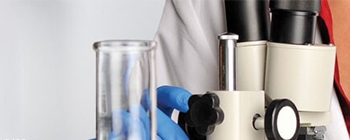Learn More
CD8a Monoclonal Antibody (4SM15), Biotin, eBioscience™, Invitrogen™
Rat Monoclonal Antibody
$476.00 - $476.00
Specifications
| Antigen | CD8a |
|---|---|
| Clone | 4SM15 |
| Concentration | 0.5 mg/mL |
| Applications | Flow Cytometry, Immunohistochemistry (Paraffin) |
| Classification | Monoclonal |
| Catalog Number | Mfr. No. | Quantity | Price | Quantity | |||||
|---|---|---|---|---|---|---|---|---|---|
| Catalog Number | Mfr. No. | Quantity | Price | Quantity | |||||
|
501122517
|
Invitrogen
13080882 |
100 μg |
Each for $476.00
|
|
|||||
Description
Description: The 4SM15 monoclonal antibody reacts with the mouse CD8a molecule. CD8a is an approximately 32-34 kDa cell surface receptor expressed either as a heterodimer with the CD8 beta chain (CD8 alpha beta) or as a homodimer (CD8 alpha alpha). A majority of thymocytes and a subpopulation of mature alpha beta TCR T cells express CD8 alpha beta while gamma delta TCR T cells, a subpopulation of intestinal intraepithelial lymphocytes (IELs) and dendritic cells express CD8 alpha alpha. CD8 binds to MHC class I and through its association with protein tyrosine kinase p56lck plays a role in T cell development and activation of mature T cells. Recent studies have shown the 4SM15 antibody recognizes and binds a non-CD8a epitope in neural tissue. The 4SM15 clone is not recommended for staining of mouse neural tissue. For additional information please contact our technical service (tech@eBioscience.com). For detection of mouse CD8a in FFPE mouse neural tissue please refer to alternate product Anti-Mouse CD8a Purified (cat. no 14-0195). The 4SM15 monoclonal antibody is not recommended for immunohistochemistry of frozen mouse tissue. For detection of mouse CD8a using immunohistochemistry of frozen tissue please refer to alternate product Anti-Mouse CD8a Purified (cat. no. 14-0081). Applications Reported: This 4SM15 antibody has been reported for use in flow cytometric analysis, microscopy, and immunohistochemical staining of formalin-fixed paraffin embedded tissue sections.
Cluster of differentiation 8 (CD8), a type I transmembrane glycoprotein of the immunoglobulin family of receptors, plays an integral role in signal transduction, and T cell differentiation and activation. CD8 is predominantly expressed on T cells as a disulfide-linked heterodimer of CD8alpha and CD8beta, where it functions as a co-receptor, along with T cell receptor (TCR), for major histocompatibilty complex class I (MHC-I) molecules; whereas its counterpart, CD4, acts as a co-receptor for MHC-II molecules. CD8 exists on the cell surface, where the CD8alpha chain is essential for binding to MHC-I. CD8 is also expressed on a subset of T cells, NK cells, monocytes and dendritic cells as disulfide-linked homodimers of CD8alpha. Ligation of MHC-I/peptide complexes presented by antigen-presenting cells (APCs), triggers the recruitment of lymphocyte-specific protein tyrosine kinase (Lck), which leads to lymphokine production, motility and cytotoxic T lymphocyte (CTL) activation. Once activated, CTLs play a crucial role in the clearance of pathogens and tumor cells. Differentiation of naive CD8+ T cells into CTLs is strongly enhanced by IL-2, IL-12 and TGF-beta1.Specifications
| CD8a | |
| 0.5 mg/mL | |
| Monoclonal | |
| Liquid | |
| RUO | |
| IgG2a λ | |
| Affinity chromatography | |
| Antibody |
| 4SM15 | |
| Flow Cytometry, Immunohistochemistry (Paraffin) | |
| Biotin | |
| Rat | |
| Mouse | |
| Primary | |
| 4° C, store in dark, DO NOT FREEZE! | |
| Cd8a |
For Research Use Only.



